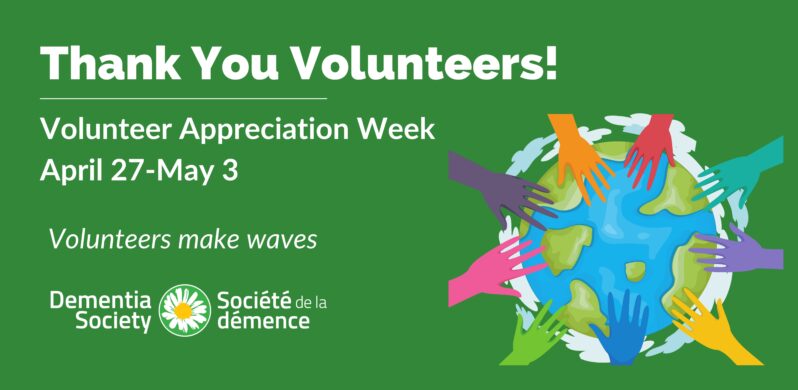“We have dementia. That’s what they said. We didn’t really know what any of this meant, and that’s where the Dementia Society came in. Everyone in our situation needs to be told – ‘go to this place and talk to these people and they will help you.’”
This is Kevin and Karen’s story, but it is also the story of The Dementia Society of Ottawa and Renfrew County.
Our wish, made possible only with your help, is to improve the quality of life of people living with dementia, their caregivers and their families.
Karen and Kevin
Karen and Kevin are a single unit. Karen doesn’t have dementia, they have dementia. Karen doesn’t enjoy the Turquoise music program run by the Dementia Society, they enjoy the Turquoise music program.
“Turquoise is a lot of fun and we’re really lucky to have Chris – it’s sort of the Chris show, and it wouldn’t be the same without Moe. She’s amazing. We’ve met so many people through the program.”
When Kevin describes their happy times together, he talks about it from both his and Karen’s perspective. Like the time they took a month or so off work for a boat trip all the way up to Georgian Bay.
“Karen liked it best when we arrived somewhere, I liked it best when we were going somewhere.”
A whole month together on a 30-foot boat. They both loved it, with Karen enjoying the stops and Kevin enjoying the journey. After that trip, though, Karen’s dementia made it hard for her to help, and the boat was too big for Kevin to handle on his own. They had to sell.
This part of their story is not uncommon to people whose lives are impacted by dementia. And this is why your donation is so important today. We need to help the thousands of people in our community with support, education and referral. Our goal is to work with families every step along the way, because we know that dementia is experienced differently by each person.
Diagnosis
They think the dementia began around the time Kevin retired. Now that he was home all day, he started doing the household chores – cooking, cleaning, raking leaves – that had once been Karen’s domain. As he puts it, “I figured it was my turn.” Meanwhile, Karen was still working for two more years. This disruption in routine meant that it took longer than it might otherwise to notice something was wrong.
It began with misplaced phones, forgotten appointments, and Karen turning away from preparing the family’s tax returns, something she had done for years. After a while, they knew something was seriously wrong. But the family doctor brushed them off at first, a psychologist offered a range of possible explanations, and it was only Kevin’s hard work doing internet research that led them to request a memory test.
From there, things happened pretty quickly. They were introduced to Dr. Frank, a neurologist at Bruyère, and went through a battery of tests. When it was determined that Karen did, indeed, have dementia, it was on to the Dementia Society.
“When I walked into the Dementia Society the first person I saw was Misia, a Dementia Care Coach. We knew her previously because she had worked at Grace Manor as an activity aid – so that was great – oh hey, I know you! Since then, with Between Us, the Dementia Society’s younger onset support group, we’ve been working with Monique, another Dementia Care Coach, and boy does she know her stuff.”
“It’s turned out to be a pretty useful, pretty wonderful organization. We’ve learned so much, and made amazing contacts and friends through the younger onset support group. There are some amazing people there.”
The Between Us support group is a very close-knit group, and they talk about their struggles both at meetings and outside of them. Most often Karen and Kevin enjoy these outings, but sometimes they’re a little too difficult. Karen’s dementia has progressed rapidly.
“We’ve made some really close friends, and we go to the meetings and Karen likes that. We go out to dinner sometimes, and we go to walks at Mud Lake. I do wish we had done this two or three years ago. We would have been into everything. But we were late getting our diagnosis, only about three years ago.”
If you are struggling to cope, the Dementia Society is here to help. And our programs and services are only made possible with your help. This is why I am asking you today for your donation.
Day to Day
They’re still in the house they’ve shared for over three decades. They still see their three grown children regularly. All three live in Ottawa and stop by the house where they grew up to see Mom and Dad. In the summer, they go up to their cottage on weekends, where they stay up into the wee hours. They go out to the dock during the day, and at night Kevin plays guitar for Karen. When his fingers are sore, that’s the indication it’s time for bed.
In Ottawa, Karen attends a day program at the Perley and Rideau Veterans’ Health Centre. It’s a few blocks away from their house, and a short hallway down from the Dementia Society. The two of them walk, hand in hand, to the day program and back every day. There are activities for people living with dementia, such as art (they painted poppies for Remembrance Day) and music (Karen’s favourite!!).
“All things considered I think we’re doing pretty well,” Kevin says. He realizes that they are fortunate to have the help they have.
“Honestly, I don’t know what I would have done without the Dementia Society. You know, big things like the support group and music programs. And little things like information, guidance, and suggesting we get involved with the day program which has been a wonderful experience for us.”
Karen and Kevin are spending the evening the way they always have. They had a nice chicken Caesar salad for dinner – no tomatoes or nuts, because Kevin is allergic. Tomorrow Kevin will go to the cottage to finish closing it for the year, and a personal support worker will be by to spend time with Karen. Kevin has left Karen’s favourite – pasta with tomato sauce – for the PSW to prepare.
Right now, they’re each enjoying a glass of wine. Karen’s with ice, Kevin’s without. He is sipping it slowly, leaving it on the coffee table. Karen is holding her glass with both hands, close to her chest. Her fingers move nervously and unconsciously, her wedding ring tapping the glass constantly as she does so. She interjects in the conversation every now and then, and while she can rarely manage more than a few words, she’s smiling, happy to be involved. When she’s trying to explain something, Kevin gives her some prompts. When that doesn’t work, he waits until she can either express her thought, or until she forgets. His fondness for her shows in his eyes when he looks her way.

“Karen’s my sweetheart. She’s a kind, pleasant person to be around, and she’s still good company. I like it when she’s with me.”
He looks at Karen, who is smiling back at him.
“And I think she still likes it when I’m here too.”
Karen clasps her hands together and brings them to her chest. “Yeah.”
Thank you for taking this time to read Karen and Kevin’s story. The Dementia Society’s role here is quite simple, yet invaluable. Take the time to help families understand. Be sure to help find an answer or guide someone in the right direction. Help families develop the skills and techniques they need to stay connected with the people they love and support.
The number of diagnosed cases of dementia is expected to double in the next decade, and we want to be able to help every single family that’s impacted. Please be as generous as possible. With deepest gratitude,
Ken Gorman
Director of Development and Communications
P.S. Your gift makes this all possible, so thank you for being the power behind our work. May you enjoy the warmth of the holiday season.





